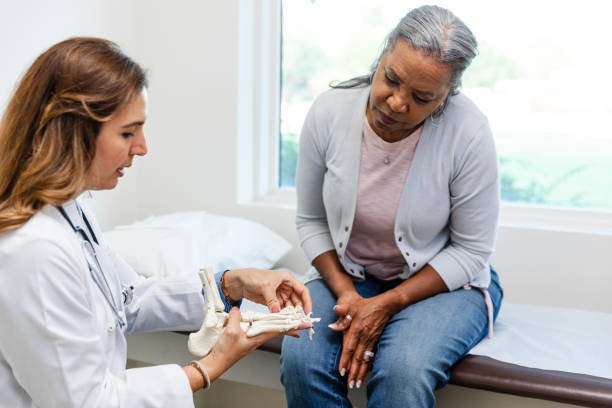
When dealing with bone, joint, or muscle pain, finding the right Best Orthopedic Surgeons in Karachi doctor is crucial for effective treatment and recovery. Whether you are suffering from an injury, arthritis, or a chronic musculoskeletal condition, seeing an experienced orthopedic specialist can help restore mobility and reduce pain. In this article, we will guide you on how to find a reliable orthopedic doctor near me and what to expect from the treatment process.
Why You Should Consult an Orthopedic Doctor
Orthopedic doctors are medical professionals who specialize in diagnosing and treating conditions related to the musculoskeletal system, which includes bones, joints, muscles, ligaments, and tendons. They treat a wide range of issues such as:
- Fractures and Sprains: Orthopedic doctors are experts in managing bone fractures, ligament sprains, and muscle strains.
- Arthritis and Joint Pain: If you experience chronic pain in your joints, especially with age, an orthopedic doctor can help manage conditions like osteoarthritis, rheumatoid arthritis, and gout.
- Sports Injuries: Whether you're a professional athlete or an active individual, orthopedic specialists treat sports-related injuries, including tendonitis, ligament tears, and dislocations.
- Back and Spine Issues: Conditions such as scoliosis, herniated discs, and sciatica often require orthopedic intervention for pain relief and improved mobility.
- Repetitive Strain Injuries: Conditions caused by repetitive movement, such as carpal tunnel syndrome or tennis elbow, can benefit from specialized orthopedic care.
If you're struggling with any of these issues, it's essential to consult an orthopedic doctor for a proper diagnosis and treatment plan.
How to Find the Right Orthopedic Doctor Near You
If you're searching for an orthopedic doctor near me, there are several ways to narrow down your options and ensure you find the right specialist for your needs.
1. Do Research Online
A great place to start is by conducting an online search for “orthopedic near me” or “orthopedic doctor near me.” Many healthcare providers and clinics have online presence with reviews and ratings from patients. Websites such as Healthgrades, Practo, or Google reviews can offer valuable insights into the reputation, experience, and patient satisfaction of various orthopedic doctors in your area.
2. Ask for Recommendations
If you know someone who has seen an orthopedic doctor for a similar issue, ask them for a referral. Personal recommendations are often the most trustworthy and can give you a better idea of what to expect from a specific doctor or clinic.
3. Check Your Insurance Network
If you have health insurance, make sure to check which orthopedic doctors are covered under your plan. Most insurance providers have an online directory that lists doctors within your network. This will help you avoid unexpected out-of-pocket costs and streamline your search for a qualified specialist.
4. Verify Credentials and Specializations
Once you have identified potential orthopedic doctors, it’s important to verify their credentials and area of specialization. Look for board-certified orthopedic surgeons with expertise in the specific issue you're facing, whether it’s joint replacement, spine surgery, sports medicine, or general orthopedics.
What to Expect During Your Visit to an Orthopedic Doctor
When you visit an orthopedic doctor, you can expect the following:
1. Initial Consultation and Medical History
The first step is typically a detailed consultation where the doctor will ask about your symptoms, medical history, and any previous injuries or surgeries. This helps them understand the root cause of your pain and determine the best course of action.
2. Physical Examination and Diagnostic Tests
After assessing your medical history, the orthopedic doctor will conduct a physical examination to evaluate your range of motion, strength, and overall function. They may also order diagnostic tests such as X-rays, MRIs, or CT scans to gain a clearer understanding of your condition and make an accurate diagnosis.
3. Treatment Plan
Based on your condition, the orthopedic doctor will develop a treatment plan that may include conservative options like physical therapy, medications, or injections. In more severe cases, surgical intervention may be required. Your doctor will explain the available options and help you choose the best path forward.
4. Follow-Up Appointments
Orthopedic care often requires follow-up appointments to monitor your progress. Your doctor will assess how well you're responding to the treatment and make any necessary adjustments to improve your recovery.
Conclusion: Getting the Right Orthopedic Care
Finding the right orthopedic doctor near me is the first step toward managing and alleviating musculoskeletal pain. Whether you're dealing with an acute injury, chronic pain, or a long-term condition, an experienced orthopedic specialist can provide tailored treatments to help you recover and maintain an active, pain-free lifestyle.
By researching your options, seeking referrals, and verifying credentials, you can ensure that you're in capable hands. Don’t let pain limit your mobility – consult with an orthopedic doctor today and take the first step toward recovery.
